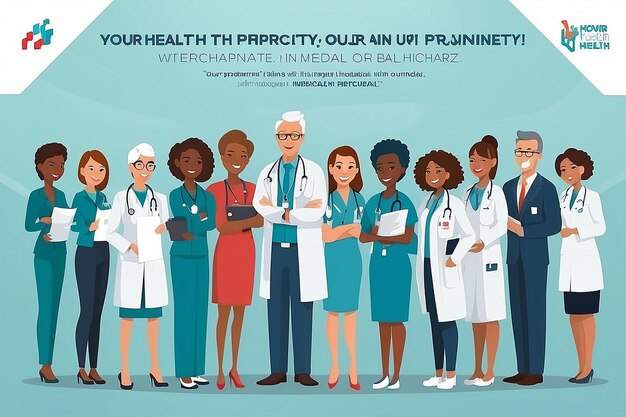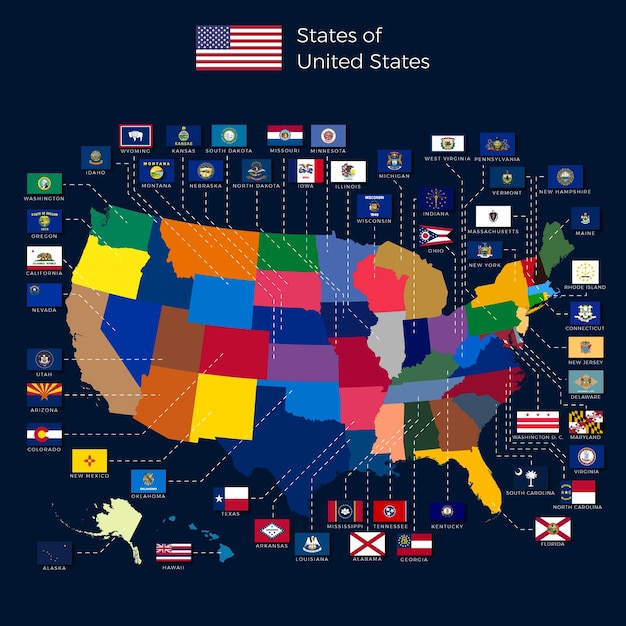Medicaid Expansion 2025: New Health Coverage Eligibility

Medicaid Expansion in 2025 aims to extend healthcare coverage to more Americans; eligibility will depend on your state’s adoption of the expansion, income levels, and other specific requirements. Understanding these criteria is crucial to determining if you qualify for new health coverage.
The landscape of healthcare access in the United States is constantly evolving, and 2025 is shaping up to be a significant year for Medicaid Expansion in 2025: Are You Eligible for New Health Coverage? Understanding these changes is crucial for individuals and families seeking affordable healthcare options. With potential shifts in eligibility criteria and state participation, navigating the system requires up-to-date information and a clear understanding of the requirements.
Understanding Medicaid Expansion in 2025
Medicaid expansion, as part of the Affordable Care Act (ACA), aimed to provide health coverage to a broader range of low-income individuals. The expansion involves increasing the income eligibility limits for Medicaid, allowing more people to qualify for coverage. States had the option to adopt this expansion, and the decisions made by each state significantly impact who is eligible for Medicaid.
The Basics of Medicaid Expansion
Medicaid expansion essentially broadens the criteria for who can enroll in the program. Prior to the ACA, many states had stricter income and categorical requirements, often excluding adults without dependent children. The expansion aimed to cover these individuals, particularly those with incomes up to 138% of the federal poverty level.
State Decisions and Their Impact
Not all states chose to expand Medicaid. As of 2024, a number of states have not adopted the expansion, leading to a coverage gap for many low-income residents. The decision to expand Medicaid often hinges on political and economic considerations within each state.
- States that expanded Medicaid have seen significant reductions in uninsured rates.
- Non-expansion states often have higher rates of uncompensated care at hospitals.
- The federal government provides enhanced funding to states that expand Medicaid.
Understanding whether your state has expanded Medicaid is the first step in determining your potential eligibility for new health coverage in 2025. This information is crucial as it directly affects the availability of Medicaid as a healthcare option for you.

Eligibility Criteria for Medicaid Expansion
Eligibility for Medicaid expansion is primarily based on income, but other factors can also play a role. Generally, adults with incomes up to 138% of the federal poverty level (FPL) are eligible in states that have expanded Medicaid. However, specific criteria may vary slightly from state to state.
Income Requirements
The income threshold is a key determinant. As of 2024, 138% of the FPL equates to approximately $20,120 for an individual and $41,400 for a family of four. These numbers are subject to annual adjustments, so it’s essential to check the latest figures.
Other Qualifying Factors
While income is the main factor, certain states may consider other criteria, such as age, disability status, or family situation. Some states may also have specific requirements related to residency or immigration status.
- Age: Some states may have different eligibility rules for specific age groups.
- Disability Status: Individuals with disabilities may qualify for Medicaid regardless of income in some cases.
- Family Situation: Having dependent children can affect eligibility.
Remember to check the specific eligibility requirements in your state, as they can vary. Information is typically available on your state’s Medicaid website or through local healthcare navigators. Understanding these details can help you accurately assess your potential eligibility for Medicaid expansion in 2025.
How to Check Your Eligibility
Determining your eligibility for Medicaid expansion involves gathering necessary information and going through the application process. Fortunately, there are several resources available to help you through each step.
Gathering Necessary Information
Before you begin, make sure you have the required documentation. This typically includes proof of income (such as pay stubs or tax returns), proof of residency (like a utility bill), and Social Security numbers for all household members.
The Application Process
The application process usually involves completing an online or paper application form. You may need to provide detailed information about your household income, employment status, and any existing health coverage.
Many states offer online portals where you can check your eligibility and submit your application electronically. This is often the most convenient and efficient method.
Available Resources and Assistance
Navigating the Medicaid system can be complex, but there are resources to help. These include:
- State Medicaid Websites: Offer detailed information about eligibility and the application process.
- Healthcare Navigators: Trained professionals who can assist you in understanding your options and completing the application.
- Community Health Centers: Provide assistance and resources related to healthcare enrollment.

Potential Benefits of Medicaid Expansion
Gaining Medicaid coverage through expansion can provide numerous benefits, including access to essential healthcare services, financial security, and improved health outcomes.
Access to Essential Healthcare Services
Medicaid covers a wide range of services, including doctor visits, hospital care, prescription drugs, mental health services, and preventive care. Having this coverage ensures that you can access the care you need when you need it.
Financial Security
Unforeseen medical expenses can be financially devastating. Medicaid provides a safety net, protecting you from high medical bills and potential debt. It can also reduce the financial strain on families.
Improved Health Outcomes
Studies have shown that people with Medicaid coverage are more likely to receive preventive care, manage chronic conditions effectively, and experience better overall health outcomes. Early and consistent access to healthcare can lead to a higher quality of life.
Understanding these benefits can help you appreciate the potential impact of Medicaid expansion on your health and financial well-being. It’s not just about having insurance; it’s about having access to the care you need to live a healthier life.
Challenges and Considerations
While Medicaid expansion offers significant benefits, it’s essential to be aware of potential challenges and considerations. These can include understanding the limitations of coverage, finding providers who accept Medicaid, and staying informed about changes to the program.
Understanding Limitations of Coverage
Medicaid coverage may have certain limitations, such as restrictions on certain types of services or the need for pre-authorization for specific treatments. It’s important to understand these limitations to avoid unexpected issues.
Finding Providers Who Accept Medicaid
Not all healthcare providers accept Medicaid. You may need to research and find providers in your area who participate in the Medicaid program. This can sometimes be a challenge, especially in rural areas.
Staying Informed About Changes to the Program
Medicaid policies and regulations can change over time. It’s crucial to stay informed about any updates or changes that may affect your coverage or eligibility. This can include changes to income thresholds, covered services, or enrollment procedures.
- Regularly check your state’s Medicaid website for updates.
- Attend community meetings or webinars related to healthcare.
- Sign up for email alerts from your state’s health department.
Being proactive and informed can help you navigate any challenges and ensure that you continue to receive the benefits of Medicaid expansion.
The Future of Medicaid Expansion
The future of Medicaid expansion remains uncertain as political and economic factors continue to influence state decisions. Understanding the potential trends and developments can help you anticipate changes and plan accordingly for your healthcare needs.
Potential Trends and Developments
Several trends could shape the future of Medicaid expansion, including ongoing debates about the ACA, changes in federal funding, and shifts in state government priorities. Some states may reconsider their decisions on expansion based on these factors.
Impact on Healthcare Access
The future of Medicaid expansion will have a significant impact on healthcare access for millions of Americans. Continued expansion could lead to lower uninsured rates and improved health outcomes, while a reversal or stagnation could leave many without affordable coverage options.
As the healthcare landscape continues to evolve, staying informed and engaged is essential. Understanding the potential future of Medicaid expansion can help you make informed decisions about your healthcare options and advocate for policies that support access to affordable coverage for all.
| Key Point | Brief Description |
|---|---|
| ✅ Expansion Basics | Medicaid expansion broadens eligibility to low-income adults. |
| 💰 Income Limits | Eligibility often includes those up to 138% of the federal poverty level. |
| ⚕️ Benefits | Coverage includes doctor visits, hospital care, and prescription drugs. |
| 🌐 State Variations | Eligibility and benefits can vary by state. |
Frequently Asked Questions
▼
Medicaid expansion is a provision under the Affordable Care Act (ACA) that allows states to extend Medicaid coverage to more low-income adults, typically those with incomes up to 138% of the federal poverty level.
▼
You can check your state’s official Medicaid website or visit websites like Medicaid.gov, which provide updated information on state decisions regarding Medicaid expansion.
▼
Generally, adults with incomes up to 138% of the federal poverty level are eligible in states that have expanded Medicaid. This threshold may vary slightly from state to state.
▼
Medicaid expansion typically covers a wide range of services, including doctor visits, hospital care, prescription drugs, mental health services, and preventive care.
▼
You can apply through your state’s Medicaid website or by completing a paper application form. Assistance is available through healthcare navigators and community health centers.
Conclusion
As we look ahead to 2025, Medicaid Expansion in 2025: Are You Eligible for New Health Coverage? remains a pivotal issue impacting healthcare access across the United States. Understanding the eligibility criteria, potential benefits, and ongoing challenges is crucial for individuals and families seeking affordable health coverage. By staying informed and engaged, you can navigate the evolving healthcare landscape and advocate for policies that support access to care for all.
